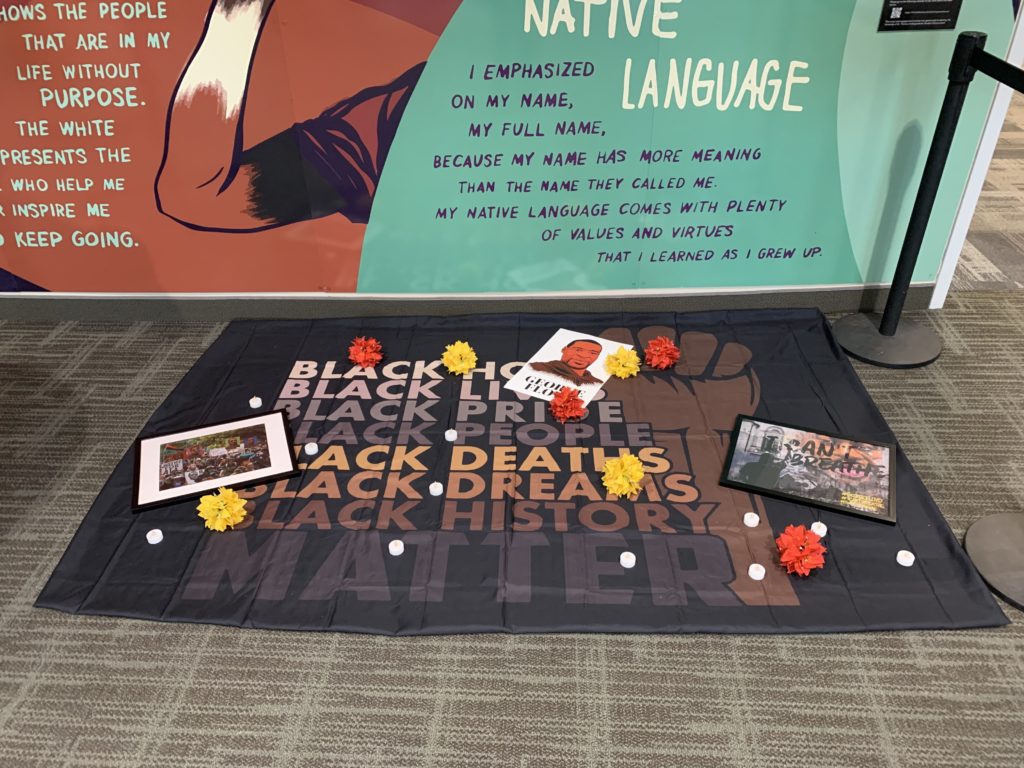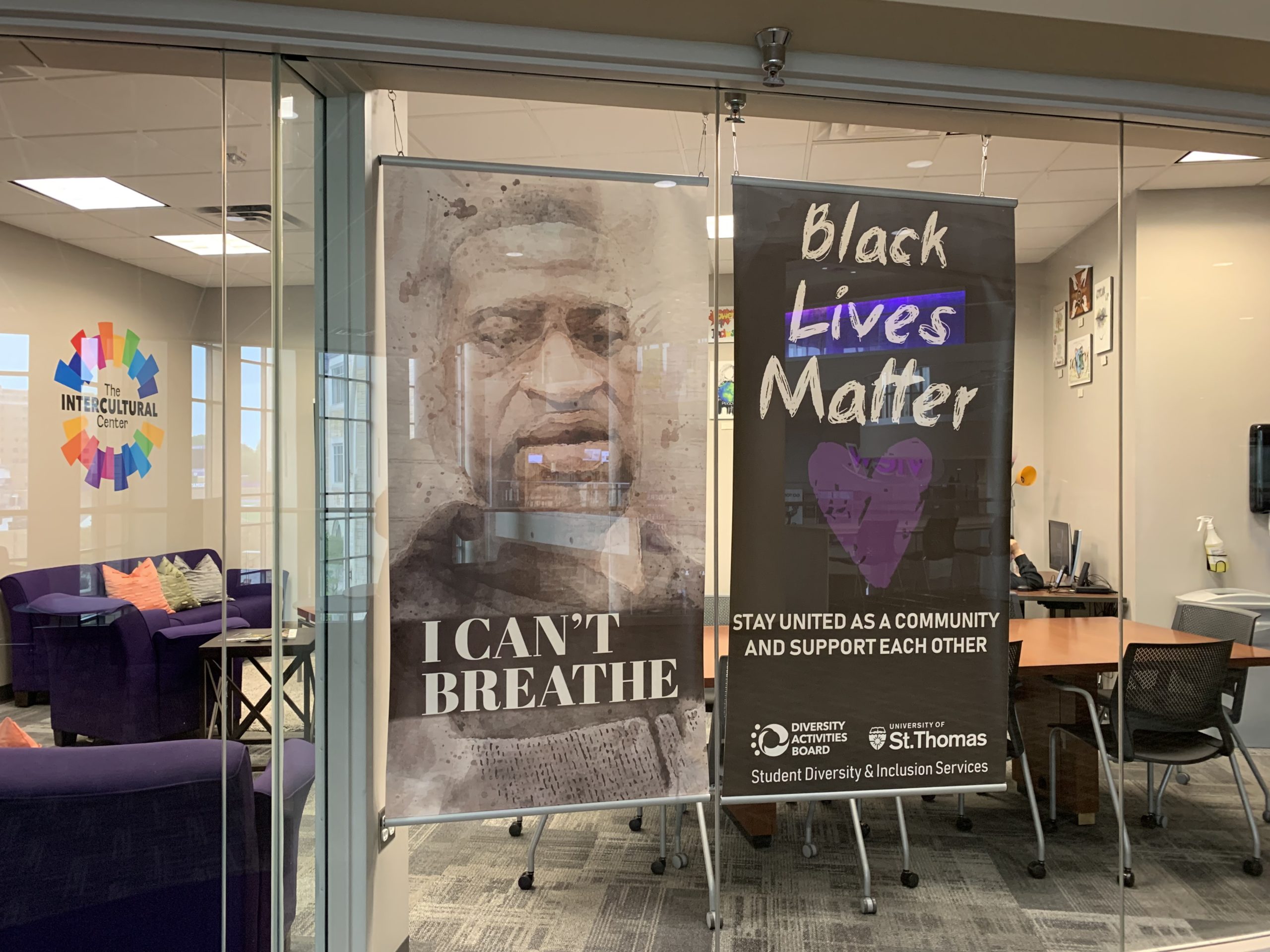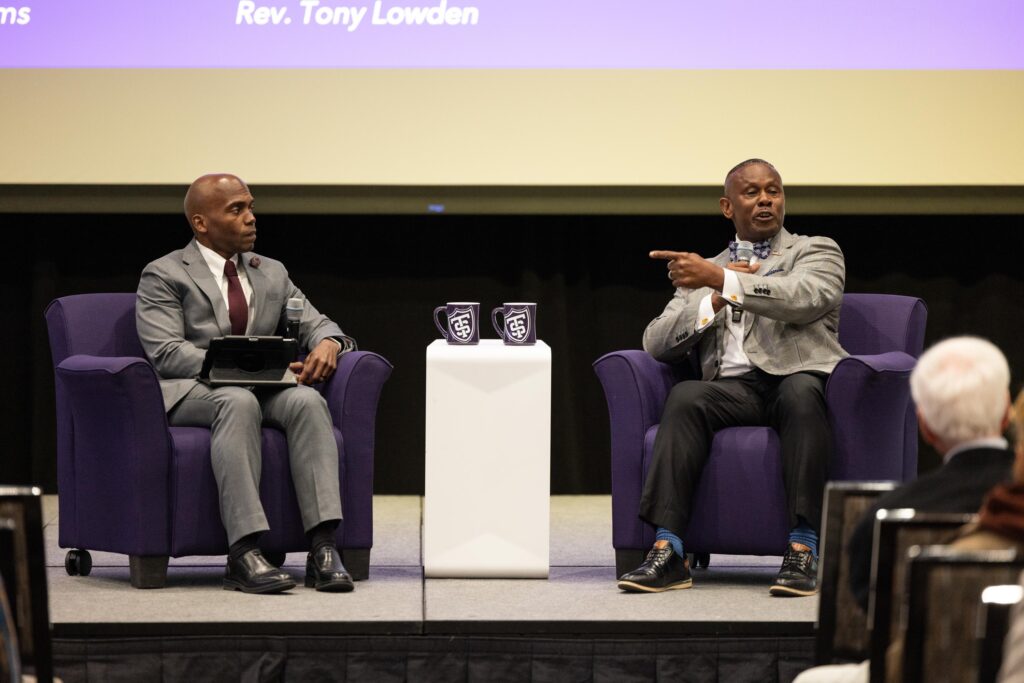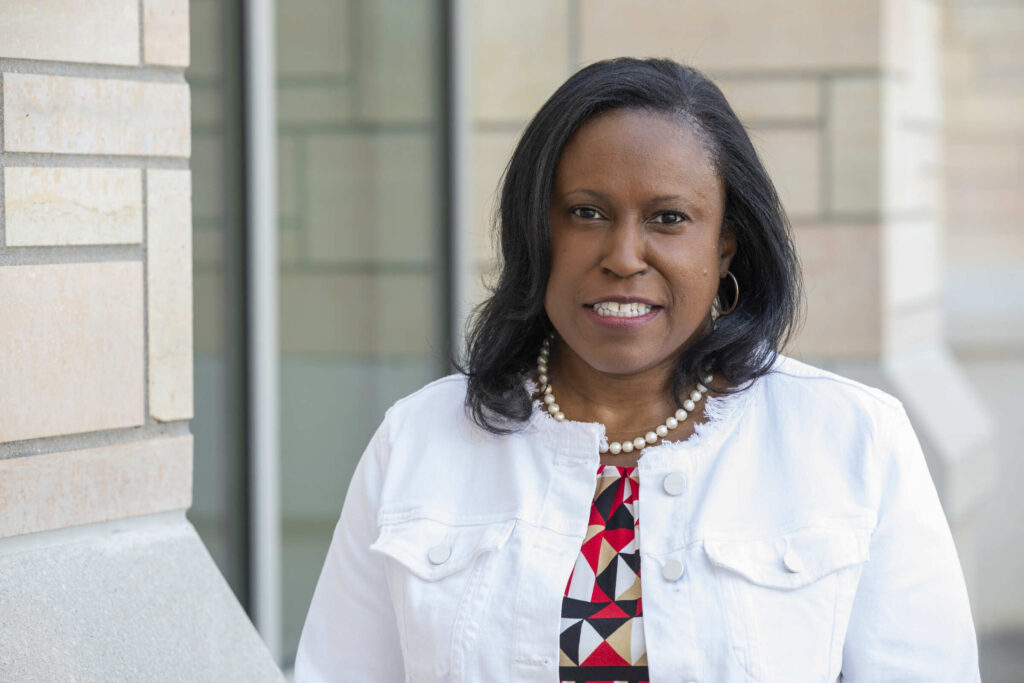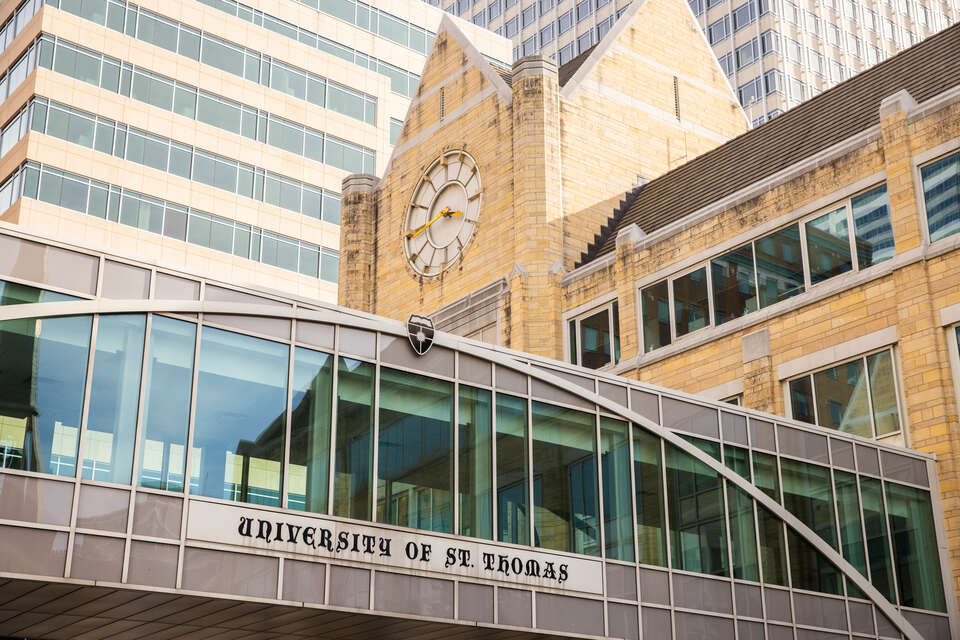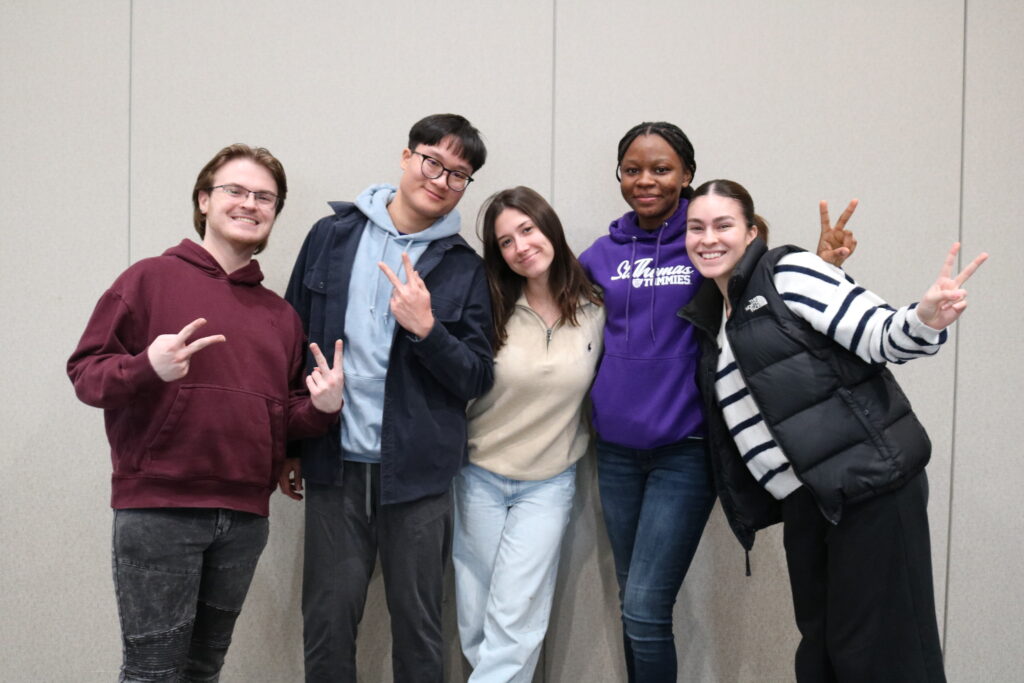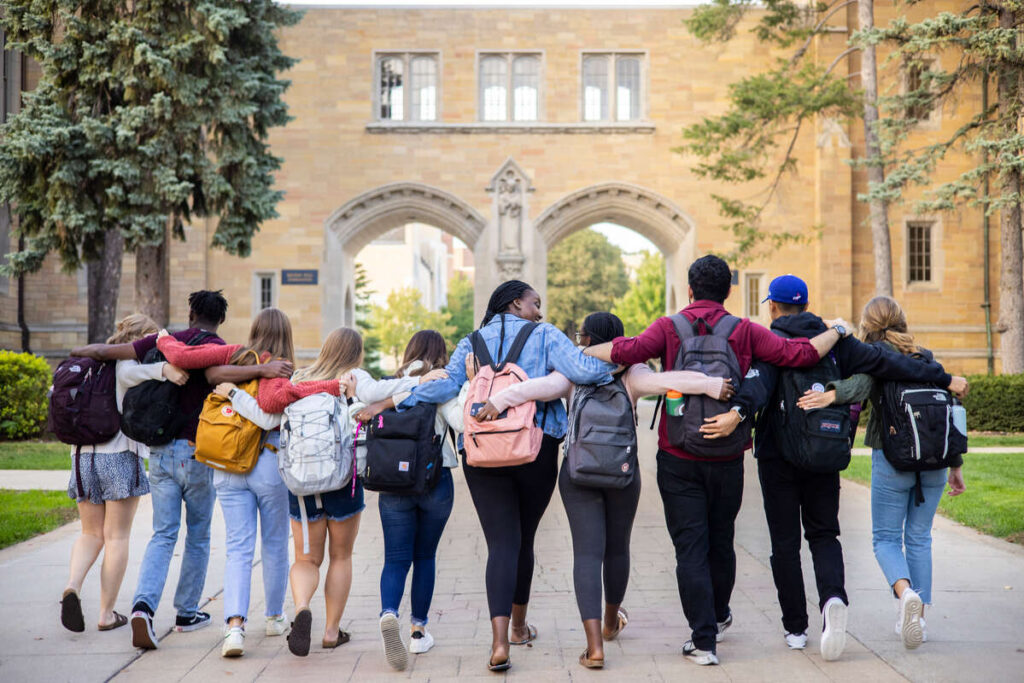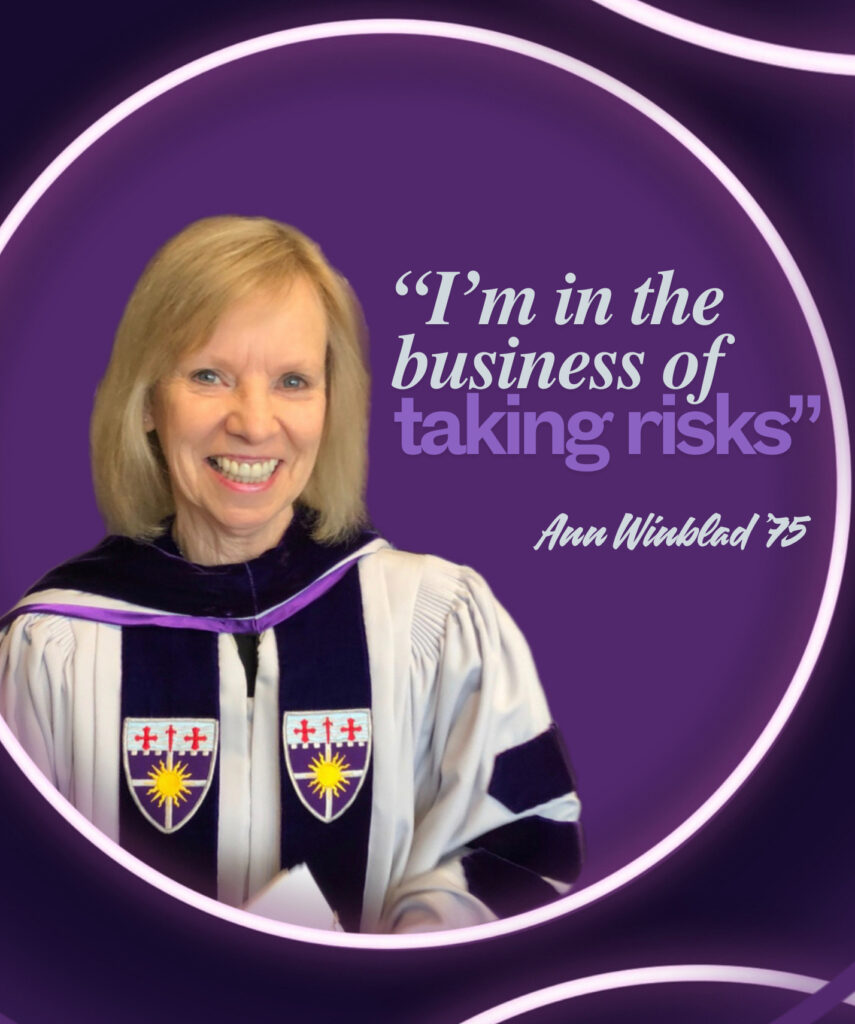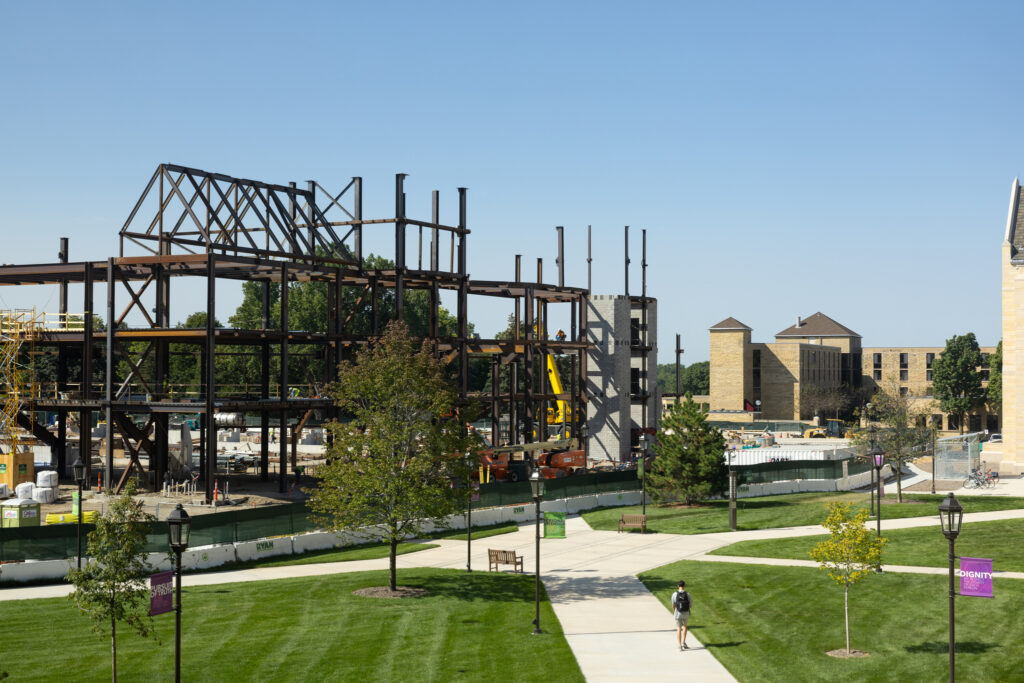May 25 marks two years since George Floyd was murdered by Minneapolis police. It’s the nine minutes and 29 seconds that sparked an international movement for racial justice. Political leaders vowed change, businesses across the globe committed to diversity, equity and inclusion, and many others, including some at the University of St. Thomas, began having important conversations about what it means to be anti-racist.
At this two-year mark of George Floyd’s murder, members of the St. Thomas community shared their reflections about what this day has come to symbolize and where we are as a society. For some university leaders, including incoming Interim President Rob Vischer, the day was further magnified by the tragic events that unfolded a day earlier in Uvalde, Texas, where a mass shooting at Robb Elementary School claimed over 20 lives.
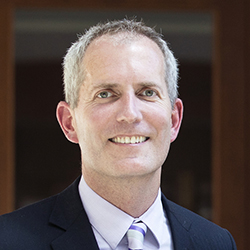
Rob Vischer made the following statement about both events:
"The Christian author Henri Nouwen wrote, 'I am beginning to see that much of praying is grieving.' Today, we have so many reasons to pray, and to grieve. On this, the second anniversary of George Floyd’s murder, our community mourns anew for the young lives lost yesterday in Texas, mere days after the racially motivated mass shooting in Buffalo. Words fail us, but the heaviness of our world is unmistakable. Please show grace to one another, and to yourself."
Others around campus also shared reflections.
Dr. Yohuru Williams, founding director of the Racial Justice Initiative and Distinguished Chair and history professor at St. Thomas:
We, as a country, have made great gestures: countless statues of people like Thomas Jefferson, Christopher Columbus, Confederate leaders and others who have supported racism have come down in cities all across the country, but the real work is still ahead. The reopening of the streets around George Floyd Square in Minneapolis, a site that had been symbolic of healing, is problematic because it is that desire for a tragedy with a happy ending that always sets us up for getting off the exit ramp before the work is done.
Americans have a very short memory and we find ourselves in this endless cycle of these abuses. Whether it is the passage of a piece of legislation, the outcome of a criminal trial or the creation of some organization, many will assume the work is done and not invest deeper. Now is the time to lean in and think differently about how we address issues of housing and education and access to affordable health care and things that often drive people to crime. We need to spend less time figuring out how we go after the so-called criminals and put more focus on the issues that are helping perpetuate the lawlessness that people see in their communities.
I was moved very much by Jerry Blackwell’s summation in the Chauvin trial last year where he talked about the bouquet of humanity that came together that day to plead for George Floyd's life and these were people from all walks and different races and different cultures who recognize that something was wrong and spoke out in that moment to try to protect George Floyd. I think we have to adopt that as our motto. In this community we need to be the bouquet. Whatever spiritual gifts or talents, expertise that we can bring to conversations that can translate into tangible action – that's what we need to commit to.
Kenneth Cooper, director of the Ciresi Walburn Leadership Fellows & Excel! Research Scholars Programs:
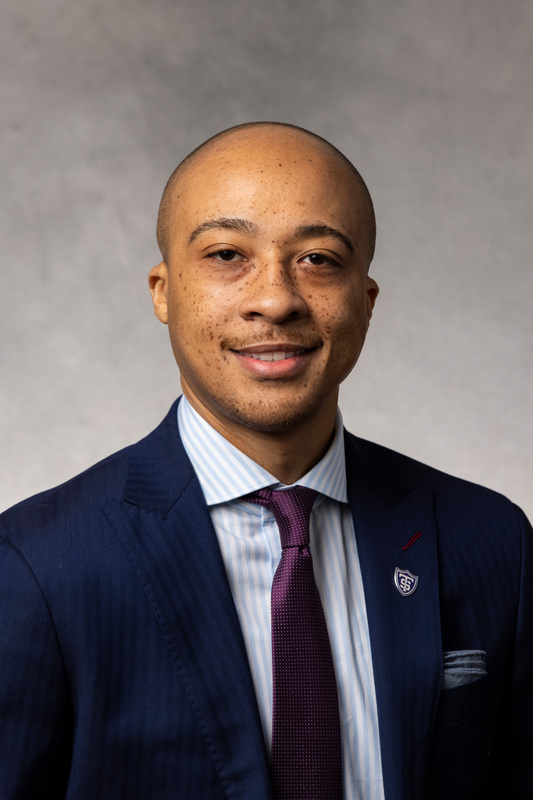
The execution of Mr. George Floyd remains among the darkest events in American History. The tragedy should have led to massive legal and social reforms, but Blackness remains under attack in our country. How can we stay optimistic with efforts to suppress Black voting rights, ban affirmative action in higher education, keep Black youth in dilapidated school systems, and make grocery shopping a life or death event? Our allies must move away from safe spaces to brave places if Black liberation matters. Their efforts must be intentional and perpetual. Black folks in America cannot achieve true freedom and enfranchisement unless those with the power want to create the same outcomes.
Professor D. Todd Lawrence, director of English Graduate Programs; and co-director, Urban Art Mapping Project.
"I don't know what to say on a day like this, so I thought, I'd read a poem."
Father Joseph Taphorn, Saint Paul Seminary rector and vice president:
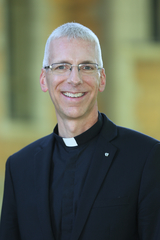
As we reflect on the anniversary of the murder of George Floyd, which occurred just a few miles from our university, it's important to remember a fundamental truth that binds us together as a human family: That God our Creator loves each and every one of us and that His Son, our Savior Jesus Christ, came to set us free from sin and death. Racism and senseless violence are opposed to the new life that Christ promises us. Sadly, such violence continues to mark our world; we now mourn for those innocent children and teachers in Uvalde, Texas, whose lives were taken just yesterday. The sober anniversary of George Floyd’s death today and the recent news from Texas remind us of the need for ongoing conversion in all of our hearts to eradicate hatred so that together we may stand to defend human life and dignity.
Dr. Sadaf Shier, associate chaplain, Campus Ministry:
My husband and I visited George Floyd Memorial a few days ago. The memorial reminds us that the knee on George Floyd’s neck has dehumanized the entire humanity. It reminds us that we have forgotten that we all are sons and daughters of Adam and Eve and that the sanctity of human life and human identity is priority over all boundaries of race, religion, class, nationality and gender. Less than a quarter mile away from his memorial is memorial cemetery “Say their Names” that symbolizes the graves of all those beloved Black men and women who were killed due to racist police brutality.
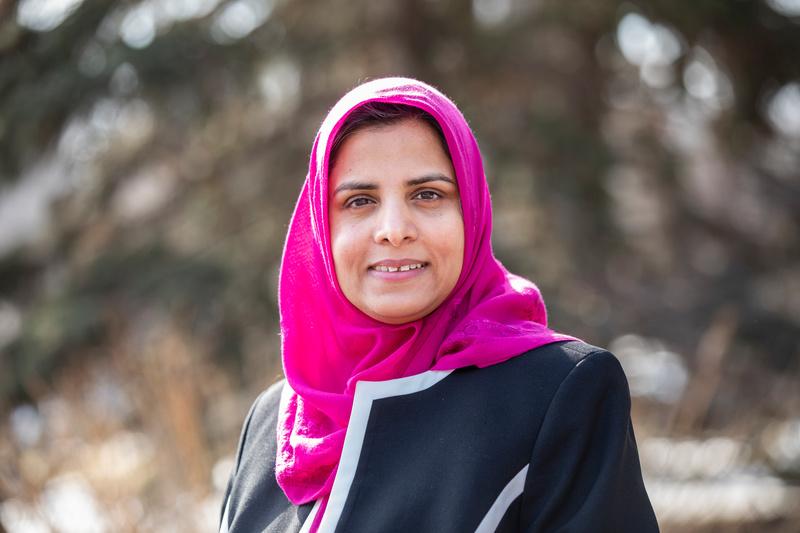
When I looked at these memorials, the last sermon of Prophet Muhammad [Peace be Upon him] came back to me with new meaning.
“O people! Listen to me very carefully, your Lord is one, Listen to me very carefully, your father is one. Listen to me very carefully, an Arab has no preference over a non-Arab; neither has the black any preference over the white (or red) and nor has any white (red) over the black, save piety. . . .” (Blessed Prophet Muhammad Peace be Upon Him during his farewell Hajj sermon in 632 A.D).
I felt as if Adam and Eve were asking us, “Why on earth do you discriminate against your own siblings?” These beloved Black men and women (and hundreds and thousands of others like them) who have been slaughtered by the racist machinery of society are asking us this question, “Why are you treating your own kin like this?”
I need to hold myself accountable for my inactions and silence. Let us ask ourselves, “How can we prevent our own implicit biases and the implicit and explicit biases of others from doing injustices to our fellow human beings?”
Kevin Henderson, DEI Fellow in the Office of Diversity, Equity and Inclusion and associate professor in the Management Department at the University of St Thomas Opus College of Business:
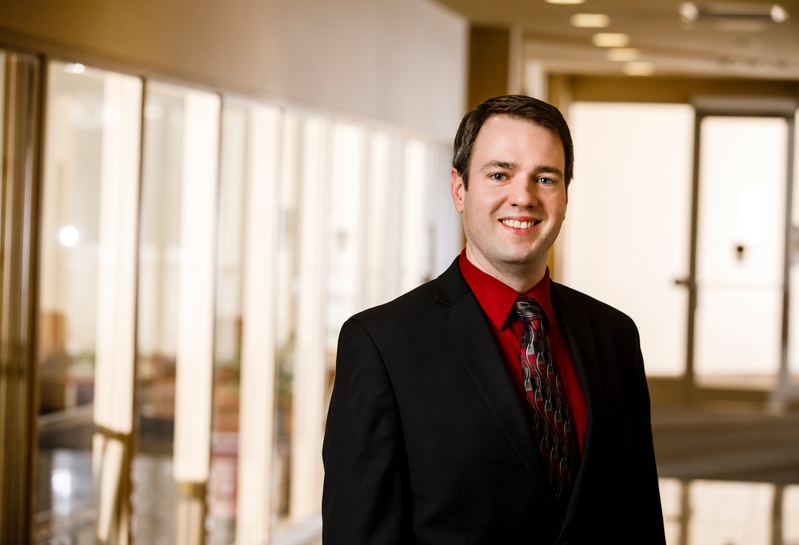
On the two-year anniversary of the murder of George Floyd, I am reflecting on the work that still remains. A police officer kneeling on the neck of a Black man while other officers did nothing made it painfully obvious that the Twin Cities is not immune from racism. People of color already knew this, of course, but now the ugly truth was there for all to see. Two years later, I worry that the urgency that was present has softened, with other “more pressing” issues drawing our collective attention. On this anniversary, I pray that we recommit to the systems work that must be done to continue to move toward a more diverse and equitable world where the dignity of all people is respected and affirmed.
J. Phillip (Phil) Rosier Jr., PsyD., LMFT, a multicultural counselor in the Counseling and Psychological Services Center for Well-Being:
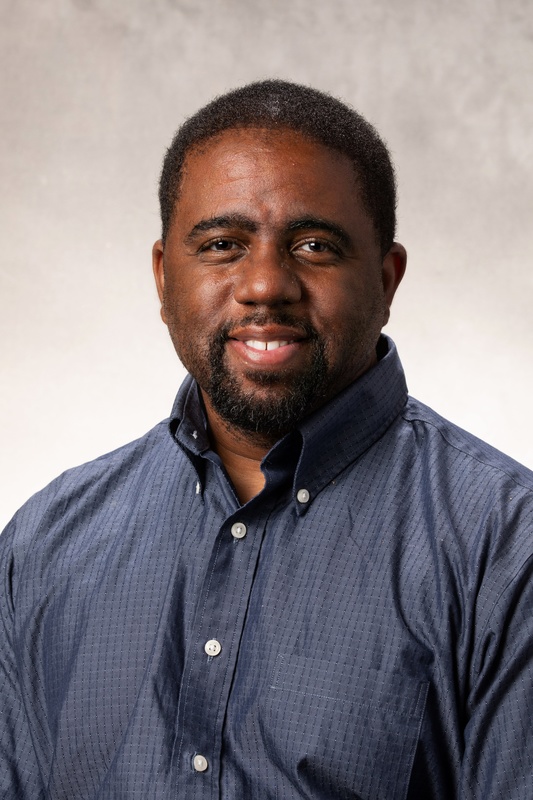
As I reflect upon the Anniversary event of the murder of George Floyd, I can’t help but ask myself “What has changed?” Daunte Wright and Amir Locke are just a few of the deaths that have occurred after the killing of George Floyd. In addition, there have been hate crimes forged against Asian Americans, African Americans, members of the LGBTQIA community, and Black and Indigenous People of Color (BIPOC) community as a whole. We have met some success with expressing our concerns about these incidents, ensuring that some police officers and perpetrators of hate crimes are punished for their violent acts, but in the area of policy change we still do not have police reform, or effective gun laws. I am sure our inability to implement policy changes had an impact on the killing of Amir Locke and Daunte Wright and made it easier for mass shootings fueled by hate.
Policy changes seem to be difficult for us on a local level as well. On a local level, we have done a great job of expressing our concerns by acknowledging the transgressions against communities of color and difference. We have increased opportunities for dialogue, we are more aware of the toll these incidents have on our student body and staff, and we are forging new opportunities like the Good Trouble Scholarship,” which help honor the needs for advocacy and change. It seems like the hardest part of preparing a society, community or school for fairness, equity and Inclusion is implementing policy, laws, and processes that protect the student body from inequity.
I would like all of us to reflect on our own departments and communities at St. Thomas and ask the question: “Have I had uncomfortable discussions about policy change?” “Have I faced my fears and feelings of uncomfortability to change processes at St. Thomas?” This is one way to honor George Floyd because I am sure it was uncomfortable to be unable to breathe for 9 minutes and 29 seconds under the knee of Derek Chauvin.
